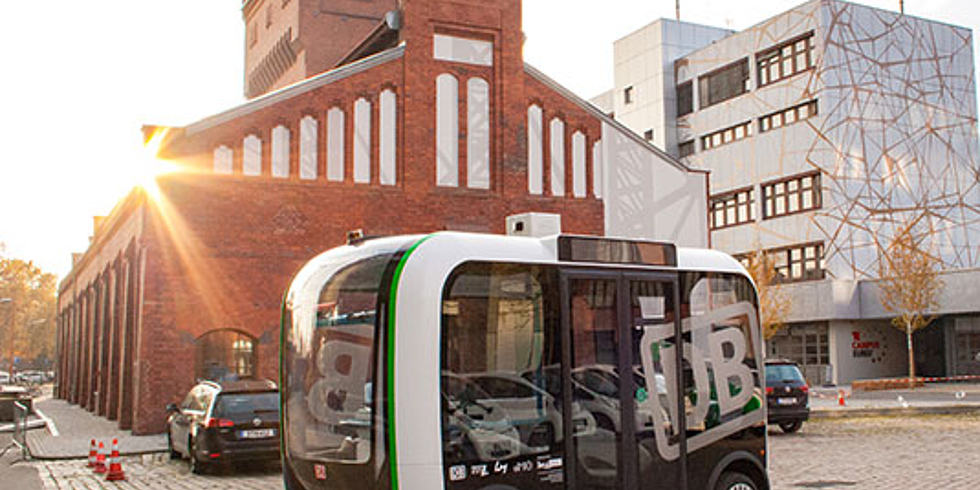Berlin supports field test with autonomous bus named “Olli”
Based on these results, a “micro factory” in Alt-Treptow will soon begin the series production of minibuses based on the “Olli” type. 40 percent of the vehicle are produced using an innovative 3D printing approach. Olli was developed by US tech company <link https://localmotors.com/>Local Motors</link>, which in 2015 opened a Berlin branch with the help of Berliner Agentur für Elektromobilität <link http://www.emo-berlin.de/de/>eMO</link>. Other partners in the testing phase are Innoz commissioned by Deutsche Bahn AG and EUREF AG, who are providing traffic areas and infrastructure for the project.
Ramona Pop, Senator for Economics, Energy and Public Enterprises highlights the importance of intelligent solutions to increasing volumes of traffic in a growing city such as Berlin: “Driverless minibuses can be used to supplement the transportation service provided by the public transport infrastructure, as part of a carsharing model and for logistical purposes, in a manner that is eco-friendly and beneficial to reducing traffic volumes.” In particular, Olli is intended to close any gaps in the public transport infrastructure as a driverless “people mover”. City areas, that have been difficult to access previously, can now be efficiently integrated into the existing infrastructure. Following up on this, daily newspaper <link https://www.welt.de/wirtschaft/article160381286/Die-Bahn-will-Busse-ohne-Fahrer-einfuehren.html>Die Welt</link> recently came to the conclusion that “the future of public transportation is called Olli”. In order to pave the way for intelligent and efficient smart city solutions Berlin is pushing to advance the development of new mobile communications standard 5G.

